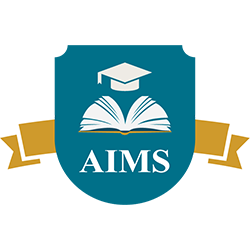The West African Examinations Council (WAEC) and the National Examinations Council (NECO) are two of the most important examination bodies in Nigeria. These exams are important for students who completed their secondary education, providing certification for academic progress and qualifications for higher studies, both locally and internationally.
In this guide, we’ll break down WAEC and NECO, their differences, grading systems, and how they impact students planning to study abroad.
What is WAEC?
WAEC, the full form is West African Examinations Council, is a regional examination body established to conduct exams in West African countries, including Nigeria, Ghana, and Gambia. Its key objective is to assess students completing their secondary education and certify them for higher education or employment.
Key Features of WAEC
WAEC is recognized all over West Africa. Let’s explore some key features of the West African Examinations Council (WAEC).
- International Recognition: WAEC results are recognized in West Africa and by international universities and employers, making them valuable for students planning to study in the UK, USA, Canada, Australia or other countries abroad.
- Examinations Conducted:
- WASSCE (West African Senior School Certificate Examination) Helds twice a year, in May/June for school candidates and November/December for private candidates.
- GCE (General Certificate Examination) is available for external candidates who are not enrolled in secondary school.
- Exam Format:
- Objective Section: Multiple-choice questions.
- Theory Section: Detailed written answers.
- Mandatory Subjects: English Language, Mathematics, and Civic Education, along with elective courses based on the student’s field (sciences, humanities, business, or technology).
What is NECO?
NECO, the National Examinations Council, is Nigeria’s indigenous examination body, established to offer affordable and accessible exams specifically for Nigerian students. It serves as an alternative to WAEC, focusing on local educational standards.
Key Features of NECO
NECO is recognized internationally. Let’s explore some key features of the National Examinations Council (NECO).
- Exclusive to Nigeria: Unlike WAEC, NECO is not conducted in other West African countries, making it more localized.
- Examinations Conducted:
- SSCE (Senior School Certificate Examination): For school candidates in June/July.
- External SSCE: For private candidates in November/December.
- Exam Format:
- Similar to WAEC, with objective and theory sections.
- Mandatory Subjects: English Language, Mathematics, and other electives based on the student’s chosen field.
What are the Subject Areas of SSCE?
Students must register for at least eight subjects and can choose up to nine. They can take their SSCE exams with one exam body, like WAEC, or with more than one (such as both WAEC and NECO) to increase their chances of getting the required credits. Some universities in Nigeria allow students to combine results from two different SSCE certificates to cover any missing credits.
Here’s how should you select the subjects:
- Three compulsory subjects: English Language, Mathematics, and Civic Education.
- Three to four additional subjects: Based on the student’s area of interest (science, technology, humanities, or business).
- At least one trade subject to complete the list.
General Grading System of WAEC and NECO in Nigeria
Both WAEC and NECO use a grading system to evaluate student performance. The General Grading System of WAEC and NECO in Nigeria is as follows:
| Letter Grades | Marks Obtained (%) | Description |
| A1 | 75% – 100% | Excellent |
| B2 | 70%-74% | Very Good |
| B3 | 65%-69% | Good |
| C4 | 60%-64% | Credit |
| C5 | 55%-59% | Credit |
| C6 | 50%-54% | Credit |
| D7 | 45%-49% | Pass |
| E8 | 40%-44% | Pass |
| F9 | 0%-39% | Failure |
The WAEC and NECO grading system in Nigeria is simple to understand. Both exams use letter grades to show results. For example, a grade of 1 equals an A1. If a student fails a subject (with a grade like F9 or 9), it usually doesn’t appear on their certificate. Let’s take a closer look at how WAEC and NECO grades work.
Note: Only grades A1 to C6 are considered passing for most international applications.
What Are the Key Differences Between WAEC and NECO?
Many international students think WAEC and NECO are the same. However, let’s explore some key differences between WAEC and NECO.
| Feature | WAEC | NECO |
| Scope | Conducted across West Africa | Limited to Nigeria |
| International Recognition | Widely recognized by universities abroad | Mainly recognized in Nigeria, with growing international acceptance |
| Examination Periods | May/June and Nov/Dec | June/July and Nov/Dec |
| Cost | Relatively higher | More affordable for Nigerian students |
| Syllabus | Broader, covering regional requirements | Focused on the Nigerian curriculum |
What Can You Do with Your WAEC and NECO Certificates?
Both WAEC and NECO certificates are accepted for admission into Nigerian universities. WAEC certificates are widely accepted by universities in the UK, USA, Canada, and Europe. NECO certificates are gaining international recognition, particularly in the UK.
Having fluency in English is a mandatory requirement for a UK student visa, Nigerian students with a grade of C6 in English in WAEC or NECO can study in UK without the IELTS test. This is a big advantage for Nigerian students who want to study abroad without taking an English proficiency test.
Employers in Nigeria and West Africa accept both WAEC and NECO certificates as proof of secondary education. You can use your WAEC and NECO certificates to meet the entry requirements for professional courses and certifications.
Can You Combine WAEC and NECO for Studying Abroad?
Yes, many Nigerian universities and some international institutions, allow students to combine results from WAEC and NECO to meet subject requirements. For example, if you score better in a subject in WAEC but need credits in another subject from NECO, you can present both certificates during your application.
Which Documents Do You Need to Take WAEC and NECO Exams?
You need some documents to take the SSCE exam through WAEC or NECO in Nigeria. To register for WAEC or NECO exams, you’ll need:
- A completed application form.
- Passport-sized photographs.
- Birth certificate or age declaration.
- School identification or testimonial (for school candidates).
Conclusion
WAEC and NECO certificates are stepping stones to achieving your educational goals, whether in Nigeria or abroad. While WAEC offers international recognition, NECO provides an accessible option for Nigerian students. If you’re planning to study abroad, ensure your results meet the entry requirements for your preferred universities.
Start your study abroad journey today! Contact our expert advisors for guidance on leveraging your WAEC or NECO results for admissions, scholarships, and visa applications.
FAQ
Can I study abroad with NECO only?
Ans: Yes, you can study abroad with NECO only but verify the university’s acceptance policy for NECO results.
What is the minimum WAEC grade for international studies?
Ans: The minimum WAEC grade for international studies credits (C6 or higher) in core subjects like Mathematics and English.
Can I combine WAEC and NECO results?
Ans: Yes, many universities allow this to meet admission requirements. If you score better in a subject in WAEC but need credits in another subject from NECO, you can present both certificates during your application.
Are WAEC and NECO exams difficult?
Ans: Both exams require preparation, but consistent study and practice can lead to excellent results.

AIMS Education is the best study abroad consultancy firm guiding students in selecting courses, universities and help them apply and secure their student visas. Also, AIMS Education is a British Council-certified agent and is listed on the British Council global agent list. We provide student recruitment services in UK, USA, Australia, Canada, Hungary, Poland, Denmark, Malta, Finland, France, Austria, Spain, Sweden, Malaysia and UAE. Not only this but also AIMS Education is an ICEF Accredited Agent, UCAS Registered Centre, PTE and Language Cert Partner.
